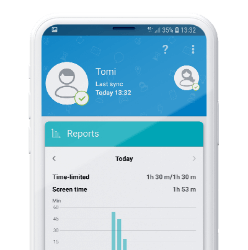How are my kids interacting with social media daily?
Trends are great until we fall for them.
A 2014 survey conducted in seven EU countries shows that social networks were the number one online pastime for 63% of the kids polled. Compared to online behaviour in 2010, this is a significant increase, as four years earlier the same statistics showed only 44% of respondents picking the same answer.
Even greater growth was documented in the watching videos category. Five years ago, 32% of the 9 to 16 age group listed this activity; in 2014 it jumped to second place with 59%.
Instant messaging came third, with 49% of youngsters in 2014 naming it as a favourite Internet activity, a 9% increase on 2010.
If you are a parent, your favourite answer in the poll would probably have been “use of Internet for school work”. Surprisingly, as many as one in three (33%) of the children surveyed chose this option, almost twice as many as in 2010 (18%).
Even though this proves that the Internet can offer a wide range of possibilities, parents should never let their guard down. For example, social networks also carry potential risks, with more than a quarter (29%) of children failing to take the most basic precautions, such as making their profile private.
If a child’s profile is public, this provides others with an opportunity to exploit their information or allow potentially dangerous people to contact them.
Among the seven European countries polled, 9 to 16-year-olds in Ireland and the United Kingdom seemed to be aware of the risks, reporting in 2010 that their profile was set to private in almost 9 out of 10 cases.
However, it is interesting that the number had declined in both countries by 2014, with slightly more Irish children (13%) and even more British children (19%) reporting that their profile was now public. Among Romanian children who took part in the survey, more than half (57%) had a public profile in 2014, up from 44% in 2010.
Comparing all the surveyed countries, more than one fifth of children in the 9 to 16 age group also had no reservations about discussing private matters on the Internet, with boys (22%) being just a little more cautious than girls (24%).
These statistics present some good background information for parents and can help them give sensible advice to their children. They can also encourage the use of other measures, such as using reliable parental control software or having open and honest conversations with their kids to discuss their experiences in cyberspace.
The 2014 survey was conducted in seven countries (Belgium, Denmark, Ireland, Italy, Romania, Portugal and the United Kingdom) on a sample of 3,500 children aged 9 to 16. The 2010 survey was conducted in 25 EU countries on a sample of 25,000 children, (of whom 7,000 were from the seven countries polled in 2014), also aged 9 to 16.


With ESET Parental Control for Android
TRY FREE FOR 30 DAYSTrends are great until we fall for them.
In our present digital age, where social media platforms are a hub for connection, it's crucial to understand the implications of oversharing, particularly for our kids.
By sharing more we can prevent oversharing